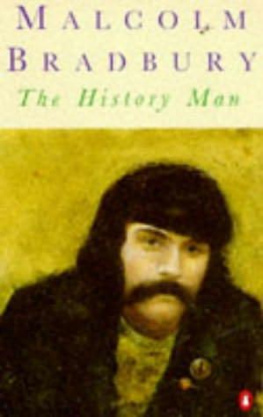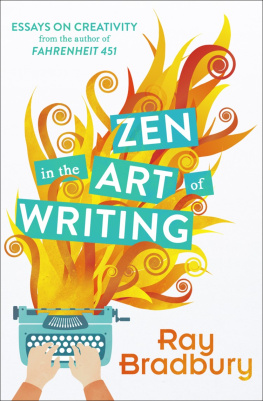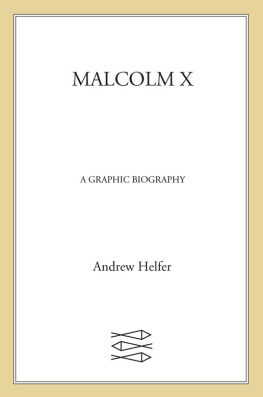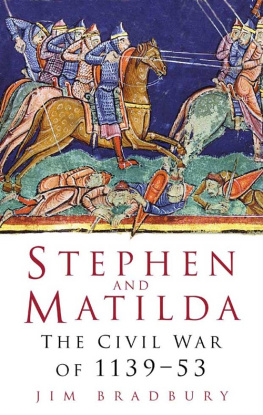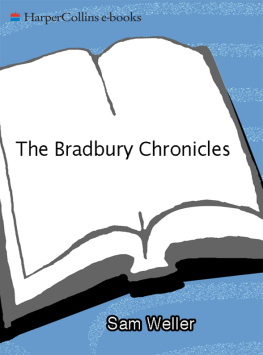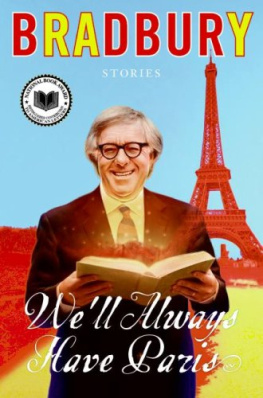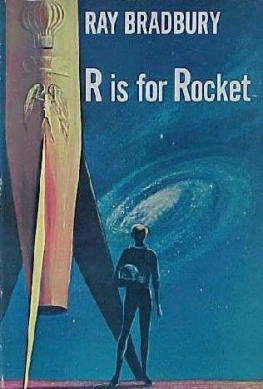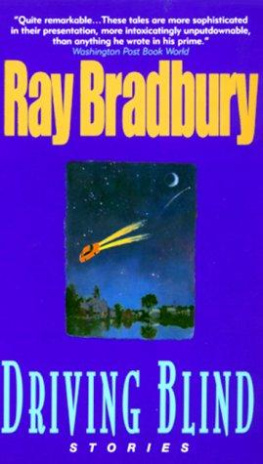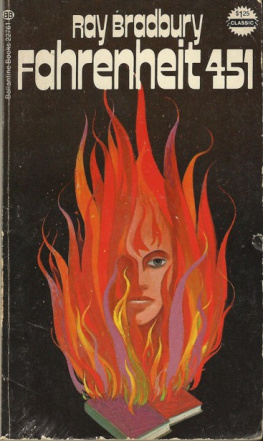Malcolm Bradbury - The History Man
Here you can read online Malcolm Bradbury - The History Man full text of the book (entire story) in english for free. Download pdf and epub, get meaning, cover and reviews about this ebook. year: 1975, genre: Detective and thriller. Description of the work, (preface) as well as reviews are available. Best literature library LitArk.com created for fans of good reading and offers a wide selection of genres:
Romance novel
Science fiction
Adventure
Detective
Science
History
Home and family
Prose
Art
Politics
Computer
Non-fiction
Religion
Business
Children
Humor
Choose a favorite category and find really read worthwhile books. Enjoy immersion in the world of imagination, feel the emotions of the characters or learn something new for yourself, make an fascinating discovery.
- Book:The History Man
- Author:
- Genre:
- Year:1975
- Rating:4 / 5
- Favourites:Add to favourites
- Your mark:
- 80
- 1
- 2
- 3
- 4
- 5
The History Man: summary, description and annotation
We offer to read an annotation, description, summary or preface (depends on what the author of the book "The History Man" wrote himself). If you haven't found the necessary information about the book — write in the comments, we will try to find it.
The History Man — read online for free the complete book (whole text) full work
Below is the text of the book, divided by pages. System saving the place of the last page read, allows you to conveniently read the book "The History Man" online for free, without having to search again every time where you left off. Put a bookmark, and you can go to the page where you finished reading at any time.
Font size:
Interval:
Bookmark:
| The history man | |
| Malcolm Bradbury | |
| London : Picador, 2000. (1975) | |
| Rating: | |
| Tags: | General, Fiction, Literary, Universities and colleges, Nineteen seventies Generalttt Fictionttt Literaryttt Universities and collegesttt Nineteen seventiesttt |
Product Description
Howard Kirk is the trendiest of radical tutors at a fashionable university. Timid Vice-Chancellors pale before his threats of disruption. Reactionary colleagues are crushed beneath his merciless Marxist logic. Woman are drawn by his promiscuity. A self-appointed revolutionary hero, Howard always comes out on top.
From
Husband and wife radical poseurs wreak havoc in British academia during the '60s and '70s in this satirical novel first published in 1975. Novelist, critic, television dramatist and part-time professor Bradbury won the Royal Society of Literature's Heinemann Prize for it and adapted it into a TV series. On audiotape, narrator Paul Shelley gives it fine treatment, underplaying the humor and nicely vivifying the characters. Despite all the references to the European left, anyone trafficking among the American liberal intelligentsia of the period will recognize the symptoms and get a chuckle out of them. Y.R. AudioFile 2000, Portland, Maine-- Copyright AudioFile, Portland, Maine
Malcolm Bradbury THE HISTORY MAN
First published in 1975
To Matthew and Dominic
Author's Note
This fiction is for Beamish, whom, while en route for some conference or other, I last saw at Frankfurt airport, enquiring from desk to desk about his luggage, unhappily not loaded onto the same plane as he. It is a total invention with delusory approximations to historical reality, just as is history itself. Not only does the University of Watermouth, which appears here, bear no relation to the real University of Watermouth (which does not exist) or to any other university; the year 1972, which also appears, bears no relation to the real 1972, which was a fiction anyway; and so on. As for the characters, so-called, no one but the other characters in this book knows them, and they not well; they are pure inventions, as is the plot in which they more than participate. Nor did I fly to a conference the other day; and if I did, there was no one on the plane named Beamish, who certainly did not lose his luggage. The rest, of course, is true.
'Who's Hegel?' 'Someone who sentenced mankind to history.' 'Did he know a lot? Did he know everything?'
--Gnter Grass
I
Now it is the autumn again; the people are all coming back. The recess of summer is over, when holidays are taken, newspapers shrink, history itself seems momentarily to falter and stop. But the papers are thickening and filling again; things seem to be happening; back from Corfu and Sete, Positano and Leningrad, the people are parking their cars and campers in their drives, and opening their diaries, and calling up other people on the telephone. The deckchairs on the beach have been put away, and a weak sun shines on the promenade; there is fresh fighting in Vietnam, while McGovern campaigns ineffectually against Nixon. In the chemists' shops in town, they have removed the sunglasses and the insect-bite lotions, for the summer visitors have left, and have stocked up on sleeping tablets and Librium, the staples of the year-round trade; there is direct rule in Ulster, and a gun-battle has taken place in the Falls Road. The new autumn colours are in the boutiques; there is now on the market a fresh intra-uterine device, reckoned to be ninety-nine per cent safe. Everywhere there are new developments, new indignities; the intelligent people survey the autumn world, and liberal and radical hackles rise, and fresh faces are about, and the sun shines fitfully, and the telephones ring. So, sensing the climate, some people called the Kirks, a well-known couple, decide to have a party. The Kirks have, in fact, had a party at just this time of the year--the turning-point when the new academic year starts, new styles are in, new faces about, new ideas busy--for the past three autumns; and, if it had been anyone else but the Kirks, you might have said it was a custom or tradition with them. But the Kirks are very fresh and spontaneous people, who invest in all their activities with high care and scruple, and do nothing just because it has been done before; indeed they are widely understood not to have such things as customs and traditions. If the Kirks happen to have thought of a party, well, they have thought of it innocently, afresh, and from a sense of need. Evolving time signals mysteriously to those who are true citizens of it; the Kirks are true citizens of the present, and they take their messages from the prevailing air, and answer them with an honest sense of duty. They are, after all, very busy people, with many causes and issues, many meetings and conspiracies, many affairs and associations to attend to; indeed they are very lucky to catch each other in like mind, very lucky to catch each other at the same time in the same house at all. But they do know a need when they see one, and here they are, together in their own kitchen, and the idea comes, it is not clear from whom, above all, in fact, from the force of the times. Their eyes brighten, as they always do when such news comes; they say yes to each other; they set to work at once on the who, what and how of it. Howard, because he is nearest, leaves their bright pine kitchen, and goes out into the hall, to fetch, from beside their busy telephone, their busy house diary, a crucial text and record for people like themselves. They put the book between them on the kitchen table, and open it; they inspect the long, predictive tale of doings and undoings it unfolds, the elaborate, contingent plot of the days ahead of them. 'When?' says Barbara. 'Soon,' says Howard. 'Are we free on the first day of term?' asks Barbara. It is improbable, but Howard turns the pages; there is the day, Monday 2 October, and the evening is a blank. It is almost an omen; and from his inside pocket Howard takes out, at once, his pen. He holds the diary open; he writes, in his neat little hand, as if writing the start of some new story, which in a sense is what it is, the word 'Party' in the small space of white on the crowded page. The Kirks have had parties at this time of year before, they recall, and they know a lot of people will come; they are, after all, a very well-known couple. Howard is a sociologist, a radical sociologist, a small, bright, intense, active man, of whom you are likely to have heard, for he is much heard of. He is on television a good deal, and has written two well-known and disturbing books, urging new mores, a new deal for man; he has had a busy, literary summer, and a third book is on its way. He also writes articles in the papers, and he lectures at the local new university, a still expanding dream in white concrete, glass, and architectural free form, spreading on a hillside just to the west of, and just outside, the south-western sea-coast town in which they live. The university, having aspirations to relevance, has made much of sociology; and it would be hard to find anyone in the field with a greater sense of relevance than Howard. His course on Revolutions is a famous keystone, just as are, in a different way, his interventions in community relations, his part in the life of the town. For Howard is a well-known activist, a thorn in the flesh of the council, a terror to the selfish bourgeoisie, a pressing agent in the Claimants' Union, a focus of responsibility and concern. As for Barbara, well, she is at this minute just a person, as she puts it, trapped in the role of wife and mother, in the limited role of woman in our society; but of course she, too, is a radical person, and quite as active as Howard in her way. She is, amongst her many competences and qualifications, _a cordon bleu_ cook, an expert in children's literature, a tireless promoter of new causes (Women for Peace, The Children's Crusade for Abortion, No More Sex for Repression). And she, too, is a familiar figure, in the streets, as she blocks them with others to show that traffic is not inevitable, and in the supermarkets, as she leads her daily deputation to the manager with comparative, up-to-the-minute lists showing how Fine Fare, on lard, is one pence up on Sainsbury's, or vice versa. She moves through playgroups and schools, surgeries and parks, in a constant indignation; she writes, when it is her turn, for the community newspaper. When you visit the Kirks, there is always a new kind of Viennese coffee-cake to eat, and a petition to sign. And, as for the Kirks together, the well-known couple, they are a familiar pair in the high-rise council flats, going up and down in the obscenity-scrawled Otis lifts, hunting out instances of deprivation to show the welfare people, of careless motherhood to take to the family planning clinic; in the council offices, where they throw open doors behind which officials sit to thrust forward, in all their rebuking and total humanity, the fleshed-out statistic, the family that has not had its rights, not had just benefits, not been rehoused; and in the town in general, raising consciousness, raising instructive hell. The Kirks are active in the world as it is, in all its pathetic contingency; but they have higher hopes yet. They wake each morning and inspect the sky meticulously for dark hands, thunderbolts, white horsemen: evidence that the poor reality they so seriously tend has at least been wonderfully transformed, a new world, a new order, come overnight. But in the meantime they go on, together and separately. They have been married now for twelve years, though you wouldn't think it, to look at them, to see them, to hear them in action. They have produced, by prophylaxis, two children, bright, modern creatures, both now of school age, of whom they are reasonably fond. They live together in a tall, thin, stuccoed Georgian house, which is in a slum-clearance area right in the middle of the town. It is an ideal situation for the Kirks, close to the real social problems, the beach, the radical bookshop, the family planning clinic, the macrobiotic food store, the welfare offices, the high-rise council flats, and the rapid ninety minute electric train service up to London, close, in short, to the stuff of ongoing life. From time to time, being passionate, liberated, consciousness-conscious people, they live apart, or with someone else, for a spell. But these always seem mature, well-thought interludes and infidelities, expressing their own separate individuality without disturbing their common Kirkness, and so somehow they always manage to be back together again within the month, and hence to seem, in the eyes of their friends, and presumably in their own eyes as well, a settled, but not an absurdly settled, couple. For the Kirks always generate excitement, curiosity. They are experimental people, intimates with change and liberation and history, and they are always busy and always going. They look the way new people do look, this autumn. Howard, small, dark, and compact, has long hair, though not quite so long as it was last year, and a Zapata moustache; he wears neat white sweatshirts, with rousing symbols on the front, like clenched fists, and hairy loose waistcoats, and pyjama-style blue jeans. Barbara, who is big and has frizzled yellow hair, wears green eyeshadow, and clown-white makeup, and long caftan dresses, and no bra, so that her stubby nipples show through the light cotton. Howard's two books being now staple radical documents in that expanding market, their jeans and caftans are rather more expensive than those of most of the people they know. But it is invisible expense, inconspicuous unconsumption, and it creates no distances and makes them no enemies, except for the enemies who were always their enemies. The Kirks are very attractive, very buoyant, very aggressive people, and, even if you dislike or distrust them, or are disturbed by them (and they mean to be disturbing), very good company. After the instinct about the party comes to them, an instinct so harmonious that neither one of them can now remember which of the two of them thought of it first, the Kirks go down to Howard's study, which is in the basement of their Georgian terrace house, and pour themselves some wine, and start to work on what Howard calls 'the loose frame of reference surrounding this encounter'. There are two studies in the Kirk house, though it is a very unstructured house, the opposite of the kind of thing people call a home: Howard's, downstairs, where he writes books, and Barbara's, upstairs, where she means to. Howard's study is lined with bookshelves; the bookshelves are filled with sociology texts, books about encounter groups and interpersonal relations, new probes into radical experience by American visionaries, basic political manifestos. Under the window is a white desk, with a second telephone on it; on the desk lies a fluttering pile of paper, the typescript of the book-which is called _The Defeat of Privacy_--that Howard has been working on over the recess and withdrawal of the summer, the recess that is now ending. The grilled window over the desk looks out onto a basement yard, with an untended plant tub in it; you must look upwards to see the railings onto the street. Back through the grilled windows comes in the sun that has been shining all day, a weak, late-year sun that slants in and composes square shapes on the bookcases and the walls. On the walls, between the bookcases, there are African masks, faces in black and dark brown carved wood set against white emulsion. The Kirks, in their bright clothes, sit beneath the masks, in two low white canvas chairs. They each hold their glass of red wine, and they look at each other, and they begin to talk the party into existence. They name names, they plan food and drink. After a while Barbara rises, and goes to the bottom of the stairs. 'Anne,' she shouts up into the hall, 'Howard and I are planning a party. I wonder if you'd give the children a bath?' 'Fine, Mrs Kirk,' shouts Anne Petty, the student who has been living with them over the summer, having fallen out so severely with her parents she cannot go home, 'I'll see to it.' 'I don't know how I'd manage without Anne,' says Barbara, sitting down in the canvas chair again. 'Beamishes,' says Howard, 'can we stand the Beamishes?' 'We've not seen them all summer,' says Barbara, 'We've not seen anyone all summer.' And that is true, for to the Kirks the summer represents the low point of the year, the phase of social neglect. Howard has finished his book--it flutters at them on the desktop--but creation is a lonely and introverted activity; he is in that flat state of literary post coitum that affects those who spend too much time with their own lonely structures and plots; he needs to be back into, to intervene in, the larger, grander, more splendid plots that are plotted by history. And Barbara has been domestic, and domesticity is an evasion to people like the Kirks; the self has bigger business to perform. But their party is a party for the world, too; they construct it solemnly. Howard is a theoretician of sociability; he debates about what he calls 'relevant forms of interaction', and the parameters of the encounter. Barbara performs the antithetical role, and thinks of persons and faces, not because men are abstract and women emotional--that is the sort of role-designation both of them would deny--but because someone has to keep abreast of who likes whom, and who can't be in the same room as whom, and who is bedding whom, and who ought sooner or later to bed whom, if you want to have really good parties. And the Kirks always do have good parties, have a talent for giving them. They are unstructured parties, frames for event, just as are Howard's seminars at the university, and his books, where urgent feeling breaks up traditional grammar, methodology and organization. But, as Howard always says, if you want to have something that's genuinely unstructured, you have to plan it carefully. And that, then, is just what the Kirks do, as they sit in their study, and drink their wine. The sunsquares on the wall fade; Howard switches on his desk lamp. The principle is creative, mixture. So the Kirks are mixing people from the town with people from the university, and people from London with people from the town. They are mixing heteros with homos, painters with advanced theologians, scientists with historians, students with Hell's Angels, pop-stars with IRA supporters, Maoists with Trotskyites, family-planning doctors with dropouts who sleep under the pier. The Kirks have a wide intellectual constituency, an expansive acquaintance; there are so many forms and contexts of changing life to keep up with. After a while Howard gets up; he leans against the bookcase; he stays 'Stop there. I'm afraid it's hardening. If we say any more, it'll turn into the kind of bloody bourgeois party we'd refuse to go to.' 'Oh, you'd never refuse to go to a party,' says Barbara. 'I think we're losing spontaneity,' says Howard, 'we said an unpredictable encounter.' 'I just want to ask,' says Barbara, 'how many people we'll have at this unpredictable encounter. I'm thinking about the work.' 'We have to make it a real scene,' says Howard, 'a hundred, maybe more.' 'Your idea of a good party,' says Barbara, 'is to invite the universe. And then leave me to wash up after.' 'Oh, come on,' says Howard, 'we need this. _They_ need it.' 'Your enthusiasm,' says Barbara, 'it never wears, does it?' 'Right,' says Howard, 'that's why I exist. Now I'm going to pick up the telephone and make twenty-five calls, and you're going to make twenty-five calls, and there's our party.' 'Martin's wet his pyjama trousers,' shouts Anne Petty from upstairs. 'Give him some more,' shouts Barbara, up the stairs. 'Roger, it's Howard,' says Howard, with the red telephone next to his ear. 'We're planning a bit of action. No, not that kind of action: a party.' There is a new book by R. D. Laing lying on the table next to Barbara's chair; she picks it up and thumbs through its pages. 'An accidental party,' says Howard, 'the kind where you might meet anyone and do anything.' 'Or meet anything and do anyone,' says Barbara. 'Barbara's fine, I'm fine,' says Howard, 'we're just ready to get started again.' 'Oh, yes, I'm fine,' says Barbara, 'fine fine fine.' 'No,' says Howard, 'it's just Barbara having schizophrenia in the background. See you on the second. And bring anyone you can predict will be unpredictable.' 'That's what we need,' says Howard, putting down the telephone, 'people.' 'You've had all the people you can eat,' says Barbara. 'We need some fresh ones,' says Howard, picking up the telephone again, 'who do we know that we don't know? Ah, Henry, we need you, Henry. Can you and Myra come to a party?' And so Howard talks on the telephone, and makes twenty-five calls, while Barbara sits in the canvas chair; and then Barbara talks on the telephone, and makes twenty-five calls, while Howard sits in the canvas chair. The Kirks are a modern couple, and believe in dividing all tasks equally down the middle, half for you, half for me, like splitting an orange, so that both get involved, and neither gets exploited. When they have finished on the telephone, they sit in the canvas chairs again, and Barbara says, 'You buy the drinks, I'll buy the food,' and the party is all ready. So they go upstairs, to the kitchen, and here, side by side, wearing similar butcher's aprons, they prepare the dinner. The children run in and out, in their pyjamas; Anne Petty comes in, and offers to make dessert. Then they all sit at the table and eat the meal they have prepared; Anne Petty puts the children to bed, and the Kirks sit down in the living-room with their coffee, and watch television. It is unusual for them to be so together; they dwell on their amazement. Later on they go upstairs to bed together and, standing on opposite sides of the bed, undress together. They turn down the duvet; they switch on the spotlight over the bed; they touch each other, and make love together. The faces and bodies they have invented to populate their party come into the bedroom with them and join in the fun. Afterwards the light shines down on them, and Barbara says to Howard, 'I'm just afraid I'm losing some of my enjoyment.' 'Of this?' asks Howard, pressing her. 'No,' says Barbara, 'parties. The swinging Kirk scene.' 'You couldn't,' says Howard. 'Maybe I'm getting old,' says Barbara, 'all I see in my mind are dirty glasses.' 'I'll make it interesting for you,' says Howard. 'Oh, sure,' says Barbara, 'you're a great magician of the feelings, aren't you, Howard?' 'I try,' says Howard. 'Howard Kirk,' says Barbara, 'what we have instead of faith.' The days go by, and the telephones ring, and then it is the morning of Monday 2 October, when things are really starting again: the first day of term, the day of the party. The Kirks rise up, early and together. They pull on their clothes; they tidy the bed; they go downstairs. The kitchen is done out in pine. The rain washes down the window; the room is in wet half-light. In the kitchen Anne Petty stands by the stove in a candlewick dressing-gown, cooking an egg. 'What gets you up so early?' she says. 'We're going shopping,' says Barbara, 'for the party.' Howard goes to the toaster, and presses bread into it; Barbara takes a carton of eggs from the refrigerator. Howard pushes down the button on the toaster; Barbara cracks eggs and drops them into the frying-pan. The children come in, and sit down at the places Anne has already laid for them. 'Cornflakes, yuk,' says Martin. 'Oh, Jesus,' says Barbara, looking in the sink, 'I didn't know we dirtied all those plates last night. How did we do that?' 'We ate,' says Howard, who sits down at the table, inspecting the outrages of the day in the morning's _Guardian._ Anne Petty looks up; she says, 'You want me to wash them up, Mrs Kirk?' 'Oh, would you really, Anne?' says Barbara, 'there's so much to do today.' 'Oh, yes, Mrs Kirk,' says Anne Petty. 'Eggs, again,' says Martin, as Barbara serves them, 'why do you always give us the same every day?' 'Because I'm busy,' says Barbara, 'and put your plates in the sink when you're through. Howard and I are going shopping.' 'But who's going to take us to school?' asks Celia. 'Oh, hell,' says Barbara, 'now what can we do about that?' 'Would you like me to take them to school?' asks Anne Petty, looking up. 'It would be marvellous,' says Barbara, 'but I hate to ask you. You're not here to do jobs. You're here because we like having you here.' 'Oh, I know that, Mrs Kirk,' says Anne, 'but I really do like helping you. I mean, you're both such busy people. I don't know how you do so much.' 'It takes a certain genius,' says Howard. 'I do hope you're staying on with us for a bit,' says Barbara. 'We'd love to have you, and I want to make one of my little shopping trips to London next weekend. So I'll need someone for the children.' 'Oh, I don't know,' says Anne Petty, looking embarrassed, 'next weekend?' 'She means no,' says Howard, looking up from the _Guardian,_ 'the statement's equivocal, but the subtext says: "Lay off, you're exploiting me."' Anne Petty looks at him; she says, 'Oh, Dr Kirk, Kirks don't exploit anybody. Not the Kirks. It's just that I really don't see how I can.' 'Oh, everybody exploits somebody,' says Howard, 'in this social order, it's part of the human lot. But some know it, some don't. When Barbara gets anxious, she starts handing out tasks to people. You're right to resist.' 'I hand out tasks,' says Barbara, 'because I have them to do.' 'Please, look,' says Anne Petty, 'no one's exploiting anyone. Really. I'd love to stay, but my friends are coming back to the flat, and I've paid part-rent.' Barbara says: 'Oh, you're right, Howard. Everyone exploits someone. Notably you me.' 'What did I do?' asks Howard, innocently. 'Oh, God,' says Barbara, 'how his heart bleeds for victims. And he finds them all over. The only ones he can't see are the people he victimizes himself.' 'I'm sorry, Mrs Kirk, I really am,' says Anne Petty. 'You mustn't blame Anne,' says Howard, 'she has her own scene.' 'I'm not blaming Anne,' says Barbara, 'I'm blaming you. You're trying to stop my trip to London. You don't want me to have a weekend in London.' 'You'll have your weekend,' says Howard, 'Leave it to me. I'll fix it. Someone will look after the kids.' 'Who?' asks Celia, 'Anyone nice?' 'Someone Howard likes,' says Barbara. 'Doesn't Howard like Anne?' asks Martin. 'Of course I do,' says Howard. 'Get your coat on. I'm going to fetch the van.' 'It's just I have to move back to the flat with these friends,' says Anne Petty, as Howard walks across the kitchen. 'Of course you do,' says Howard, in the doorway. 'Bring them to the party.' Howard goes out into the hall, and puts on a long leather coat from the peg, and a neat blue denim cap. The conversation continues behind him in the kitchen. He walks down the hall, opens the front door, and steps out. He stands in the wet light. The terrace is puddled, the rain pours down, the city is loud. He pulls the door to behind him, on the domestic social annex, which shrills behind him; he walks out onto the urban stage, the busy movingness of city life, the place where, as every good sociologist knows, the cake of custom crumbles, traditional role-ascriptions break, the bonds of kinship weaken, where the public life that determines the private one is led. He walks along the terrace, with its cracked pavement stones, its scatter of broken glass; the rain soaks his hair, and begins to stipple the leather of his coat. The terrace curves around him; once an exact and elegant half-circle, the curious dentistry of demolition has attacked it, pulling out house after house from the curve as they have become empty. Most of those that still stand are unoccupied, with broken roofs and vacant, part-boarded windows, plastered with posters for political parties, pop groups, transcendental meditators, or rather surreptitiously occupied, for they are visited by a strange, secret, drifting population of transients. But, though there are few residents, the terrace has been metered for parking; the Kirks have to keep their minivan some streets away, in a square up the hill. A police car heehaws on the urban motorway being sliced through the demolition; buses grind below him, on the promenade. An air-force jet flies in off the sea, its line of flight an upward curve that brings it into sudden visibility over the jagged tops of the houses across the terrace from the Kirks' tall, thin house. He turns the corner; he walks up the hill. The long latticed metal of a construction crane swings into his eyeline, dangling a concrete beam. Up the hill he goes, past the remnants of the old order, the scraps of traditional Watermouth falling beneath the claims of the modern city. There are small shops--a newsagent with a window display of _The Naked Ape,_ a greengrocer with a few crates of vegetables standing outside under a leaky canvas awning, a family butcher with a notice saying 'We keep our meat on ice in hot weather'. There are small back-to-back houses, whose doors open directly onto the street; the bulldozers soon will reach them. Higher on the hill grow the new concrete towers. Before he reaches them Howard turns to the left, into a square of small houses, mostly flats and private hotels. His old blue minivan stands in a line of cars beside the kerb, under a sodium streetlamp. He unlocks the driver's door; he gets in; he turns the ignition twice to fire the engine. He drives the van back and forth, to clear the space. Then he drives out of the square, down through the busy traffic of the hill, and back into the terrace. On the pavement, outside their tall terrace house, set in its broken curve, Barbara is already standing, waiting for him to come. She wears a white, pinch-waist, full-length raincoat; she carries two red canvas bags, Swiss, from Habitat. He leans over to open the passenger door; she reaches into the van to put the bags into the back. 'You must be feeling very good,' she says, getting into the seat beside Howard, 'everything's starting for you, so you're feeling very good.' Howard lets out the clutch; he turns the van, back and forth, in the terrace. 'I'm fine,' says Howard, driving to the end of the terrace, turning up the hill. 'Shouldn't I be?' Barbara pulls on her seatbelt; she says, 'I can tell when you're feeling good because you always want to make me feel bad.' Howard follows the arrows and the directional marks, the lefts, the rights, the no entries, that lead him up the hill and towards the new shopping precinct. 'I don't want you to feel bad,' says Howard. There is a turn to the left, barred by a red arm; it is the entrance to the high multi-storey car park on the edge of the precinct. 'Well, I do feel bad,' says Barbara. Howard makes the turn; he stops the van in front of the arm; he takes a ticket from the automatic machine. 'You know what you need?' he says; the arm rises, and Howard drives forward. 'Yes,' says Barbara, 'I know exactly what I need. A weekend in London.' Howard drives up the ramp into the blank concrete of the place, through the flickers of light and dark, following the wet tyre-tracks. Howard says, 'You need a party.' The van spirals upward through the high, blank building. 'I don't need a party,' says Barbara, 'it's just another sodding domestic chore I have to clear up after.' Driving through the concrete and the metal, Howard sees, on the fifth floor, a space for the van to park; he drives into it. The garage is dark and grey; he pulls on the handbrake. 'You just had a very dull summer,' says Howard, 'now everything's happening again. Come on, let's go and shop.' The car park is a low, cavernous place, devoid of people, a place for machines only; out through the unwindowed parapet, you can see the town spread out below. The Kirks get out of the van; they walk together, over the oily, roughened floor, to the blank metal door of the lift shaft. Barbara says: 'Your excitement fails to infect me.' Howard presses the button; the lift grinds in the shaft. The doors open; the Kirks get in. There are aerosoled scribbles on the lift walls: 'Agro', 'Boot boys', 'Gary is King'. They stand together and the lift descends. It stops and the Kirks walk out. A long tiled corridor leads towards the precinct; there is human excrement against the walls of the brightlit passage. They come out among the high buildings, into a formal square. The precinct has straight angles; it has won an architectural award. There are long glass facades, the fronts of supermarkets, delicatessens, boutiques, the familiar multiple stores, displaying the economy of abundance; there is a symmetry of tins and toilet rolls in the windows of Sainsbury's; spotlights and shade permute the colour range of sweaters and shirts, dresses and skirts, in the Life Again Boutique. In the open space in the middle are multicoloured paving stones; amid the stones, in some complex yet deducible code, are tiny new trees, fresh-planted, propped by wooden supports. A waterless fountain contains much litter. The Kirks divide their tasks, half to you, half for me. Barbara walks towards the automatic glass doors of Sainsbury's, which slide open mechanically as she approaches them, and close again as she passes inside; Howard goes on down the precinct, to the wine supermarket, which is called Your Wine Seller, and has very special offers at very special prices. He walks inside, under the bright spotlights; he stands under the anti-theft mirrors, and inspects the bottles of wine that have been tossed carelessly together in the wire bins. He goes to the small counter at the back of the store. The assistant looks at him; he is young, with a beard, and wears a maroon jacket with a yellow Smile badge on the lapel; this leaves his face free to be very surly. Howard sees with gratification the indignation of the employed and oppressed, the token resistance. He gives his order, for five dozen litre bottles of cheap red wine; he waits while the man goes into the storeroom, and wheels out, on a wire trolley, a stack of big cardboard cases. He asks for the loan of twelve dozen glasses; 'We don't lend them,' says the assistant. Howard delivers himself to the task of persuasion; he emanates concern, he invites the man to the party; he gets the glasses. The assistant stacks the boxes of glasses on another trolley. Howard takes the first trolley, and wheels it, across the open space of the precinct, over the coloured paving stones, past the empty fountain, through the tiled passage, to the lift; he ascends in the lift, and unpacks the cases into the back of the minivan. He returns with the empty trolley; he takes the second trolley of glasses up into the car park, and then back to the store. When he reaches the van again, Barbara has still not returned. He stands by the van, car keys hanging from one finger, in the empty, cavernous place, devoid of people, amid the shuttered concrete planes, the rough surfaces, the angular lines of air and space, light and darkness. He stares out, over the unwindowed parapet, at the topography of the town. There are torn spaces below, where the motorway and the new housing projects are being constructed; beyond are the rising shells of hotels, office blocks, flats. There are two Watermouths; the unreal holiday town around the harbour and the Norman castle, with luxury flats and expensive bars, gift shops and pinkwashed Georgian homes; and a real town of urban blight and renewal, social tensions, discrimination, landlord and tenant battles, where the Kirks live. To one side, he can see the blocks of luxury flats, complete but half-empty, with convenience kitchens and wall-to-wall carpeting and balconies pointed at the horizon; to the other side, on the hill, stand the towers of the high-rise council flats, superficially similar, stacked, like a social workers' handbook, with separated wives, unmarried mothers, latchkey children. It is a topography of the mind; and his mind makes an intellectual contrast out of it, an image of conflict and opposition. He stares down on the town; the keys dangle; he populates chaos, orders disorder, senses strain and change. A Boeing 747 flies in off the coast heading for Heathrow; the engine noise booms in the cavernous building, sounds off the metal of the cars. In the corner of the concrete place, the lift-doors scrape back; someone walks out onto the sounding floor. It is Barbara, walking towards him, in her long white coat; she carries the two red bags, full. Her body is faint colour moving over grey cement. He watches her move through the planes of light and dark. She comes up to the van, and opens the back; into the interior, on top of the boxes, she pushes the bags, holding French loaves and cheeses. 'Enough?' she says. 'Of course, if there's five thousand, you'll be able to increase the quantity.' Howard opens the driver's door, and gets in; he opens the other door so that Barbara can come in to the passenger seat. She sits down; she fastens the seatbelt. Her face is dark in the shadowy place. He starts the engine, backs out of the space. Barbara says: 'Do you remember Rosemary?' Howard drives down the spiral ramp, with its code of arrows and lights; he says, 'The one who lives in the commune?' 'She was in Sainsbury's,' says Barbara. The van tilts down the ramps; it makes the sharp turns. 'So you asked her to the party,' says Howard. 'I did,' says Barbara. 'I asked her to the party.' They are on ground level now; Howard turns the van towards the exit, the bright wet daylight. 'Do you remember that boy she was living with?' asks Barbara. 'He had a tattoo on the back of his hand.' Through angular blocks of air and space, light and darkness, they move to the light square. 'I don't think so,' says Howard. 'You do,' says Barbara. 'He came to one of our parties. Just before the summer.' 'What about him?' asks Howard; the stubby red arm is down in front of him. 'He left a note for her on the table,' says Barbara. 'Then he went down the garden, to an old shed, and killed himself with a rope.' Howard reaches out of the window, and hands the ticket and a coin to the attendant, who sits opposite and above him, in a small glass box. 'I see,' says Howard, 'I see.' The attendant hands Howard change; the stubby arm rises in front of him. 'When?' asks Howard, moving the van forward. 'Two days ago,' says Barbara. 'Is she very upset?' asks Howard. 'She's thin and pale, and she cried,' says Barbara. Howard carefully eases the van out into the line of rush-hour traffic. 'Are you upset?' asks Howard. 'Yes,' says Barbara, 'it's upset me.' The traffic line jams. 'You hardly knew him,' says Howard, turning to look at her. 'It was the note,' says Barbara. Howard sits behind the wheel, stuck in the line, and looks at the moving collage. 'What did it say?' he asks. 'It just said, "This is silly."' 'A taste for brevity,' says Howard, 'what was? The thing with Rosemary?' 'Rosemary says not,' says Barbara, 'she says they were going great together.' 'I can't really imagine going great with Rosemary,' says Howard. Barbara stares ahead, through the windscreen. She says: 'She says he found things absurd. He even found being happy absurd. It was life that was silly.' 'Life's not silly,' says Howard, 'it may be chaotic, but it's not silly.' Barbara stares at Howard; she says, 'You'd like to quarrel with him? He's dead.' Howard inches the van forward; he says, 'I'm not quarrelling with him. He had his own thing going.' 'He thought life was silly,' says Barbara. 'Christ, Barbara,' says Howard, 'the fact that he killed himself doesn't make it into a universal truth.' 'He wrote that,' says Barbara, 'then he killed himself.' 'I know,' says Howard, 'that was his view. That was his existential choice. He couldn't make sense of things, so he found them silly.' 'It's funny to be existential,' says Barbara, 'when you don't exist.' 'It's the fact that we stop existing that makes us existential choosers,' says Howard, 'that's what the word means.' 'Thanks,' says Barbara, 'thanks for the lesson.' 'What's the matter?' asks Howard, 'are you getting yourself seduced by this absurdist thing? It's a cop out.' The traffic jam unstops. Howard lets out the clutch. Barbara stares ahead through the windscreen, down at the traffic movements on the hill. After a minute she says: 'Is that all?' 'All what?' asks Howard, moving forward through the peculiar private track that will take him through the traffic lanes and take him back to the terrace house. 'All you have to say,' says Barbara, 'all you can think.' 'What do you want me to think, that I'm not thinking?' asks Howard. 'Doesn't it worry you at all that so many of our friends feel that way now?' asks Barbara, 'do things like that now? That they seem tired and desperate? Is it our ages? Is it that the political excitement's gone? What's the matter?' 'He wasn't a friend,' says Howard, 'we hardly knew him.' 'He came to a party,' says Barbara. Howard, driving down the hill, turns and looks at her. 'Look,' he says, 'he came to a party. He was on drugs. He and Rosemary were getting into some crazy magical thing together, the kind of thing that hippies switch into when the trips turn sour. He never talked. We don't know what his problems were. We don't know what seemed absurd to him. We don't know where he and Rosemary were going.' 'Do you remember when our sort of people didn't think life was silly?' asks Barbara, 'when things were all wide open and free, and we were all doing something and the revolution was next week? And we were under thirty, and we could trust us?' 'It's still like that,' says Howard, 'people always dropped in and out.' 'Is it really like that?' asks Barbara, 'Don't you think people have got tired? Found a curse in what they were doing?' Howard says: 'A boy dies and you turn it into a metaphor for the times.' Barbara says: 'Howard, you have always turned everything into a metaphor for the times. You've always said that the times are where we are; there's no other place. You've lived off the flavours and fashions of the mind. So has this boy, who came to one of our parties, and had a blue tattoo, and put a rope round his neck in a shed. Is he real, or isn't he?' 'Barbara, you're just feeling depressive,' says Howard, 'take a Valium.' 'Take a Valium. Have a party. Go on a demo. Shoot a soldier. Make a bang. Bed a friend. That's your problem-solving system.' says Barbara. 'Always a bright, radical solution. Revolt as therapy. But haven't we tried all that? And don't you find a certain gloom in the record?' Howard turns and looks at Barbara, inspecting this heresy. He says: 'There may be a fashion for failure and negation now. But we don't have to go along with it.' 'Why not?' asks Barbara, 'after all, you've gone along with every other fashion, Howard.' Howard takes the turn into the terrace; the bottles shake in the back of the van. He says: 'I don't understand your sourness, Barbara. You just need some action.' 'I'm sure you'll find a way of giving me that,' says Barbara, 'the trouble is, I've had most of the action I can take, from you.' Howard stops the van; he puts his hand on Barbara's thigh. He says: 'You just got switched off, kid. Everything's still happening. You'll feel good again,--once it all starts.' 'I don't think you understand what I'm telling you,' says Barbara, 'I'm telling you that your gay belief in things happening doesn't make me feel better any more. Christ, Howard, how did we come to be like this?' 'Like which?' asked Howard. 'Depending on things happening, like this,' says Barbara, 'putting on shows like this.' 'I can explain,' says Howard. 'I'm sure you can,' says Barbara, 'but don't. Are you going straight off to the university?' 'I have to,' says Howard, 'to start the term.' 'To start the trouble,' says Barbara. 'To start the term,' says Howard. 'Well, I want you to help me unload all this stuff, before you go.' 'Of course,' says Howard, 'you take the food in. I'll bring the wine.' And so the Kirks get out, and go round to the back of the van, and unload what is there. They carry it, together, the bread, the cheese and the sausages, the glasses and the big red bottles in their cases, into the house, into the pine kitchen. They spread it on the table, an impressive array of commodities, ready and waiting for the party in the evening. 'I want you back by four, to help me with all this fun we're brewing,' says Barbara. 'Yes, I'll try,' says Howard. He looks at the wine; he goes out back to the van. Then he gets in, and drives off, through the town, towards the university.
Font size:
Interval:
Bookmark:
Similar books «The History Man»
Look at similar books to The History Man. We have selected literature similar in name and meaning in the hope of providing readers with more options to find new, interesting, not yet read works.
Discussion, reviews of the book The History Man and just readers' own opinions. Leave your comments, write what you think about the work, its meaning or the main characters. Specify what exactly you liked and what you didn't like, and why you think so.

